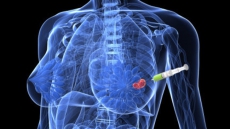A natural molecule that activates cannabinoid receptors in the brain could relieve mood and anxiety disorders and enable some people to quit using marijuana, a promising research by an Indian-origin scientist says.
Cannabinoid receptors are normally activated by compounds in the brain called endocannabinoids, the most abundant of which is 2-AG.
They are also "turned on" by an active ingredient of marijuana.
For the study, principal investigator Sachin Patel and his colleagues from the Vanderbilt University in the US developed a genetically-modified mouse with impaired ability to produce 2-AG in the brain.
The mice exhibited anxiety-like behaviour and female mice also displayed behaviour suggestive of depression.
When an enzyme that normally breaks down 2-AG was blocked, and the supply of the endocannabinoid was restored to normal levels, these behaviour patterns were reversed.
"If further research confirms that some people who are anxious and depressed have low levels of 2-AG, this method of normalising 2-AG deficiency could represent a viable therapeutic strategy for the treatment of mood and anxiety disorders," Patel, a professor of psychiatry, molecular physiology and biophysics, said.
Relief from tension and anxiety is the most common reason cited for chronic marijuana use.
"Thus, restoring depleted levels of 2-AG also could be a way to help people using marijuana," Patel added.
The paper appeared online in the journal Cell Reports.





